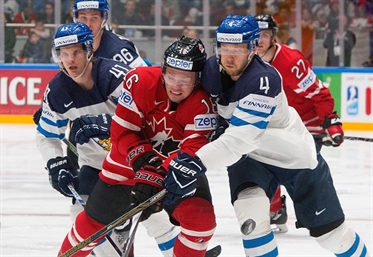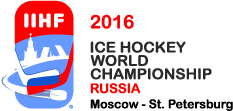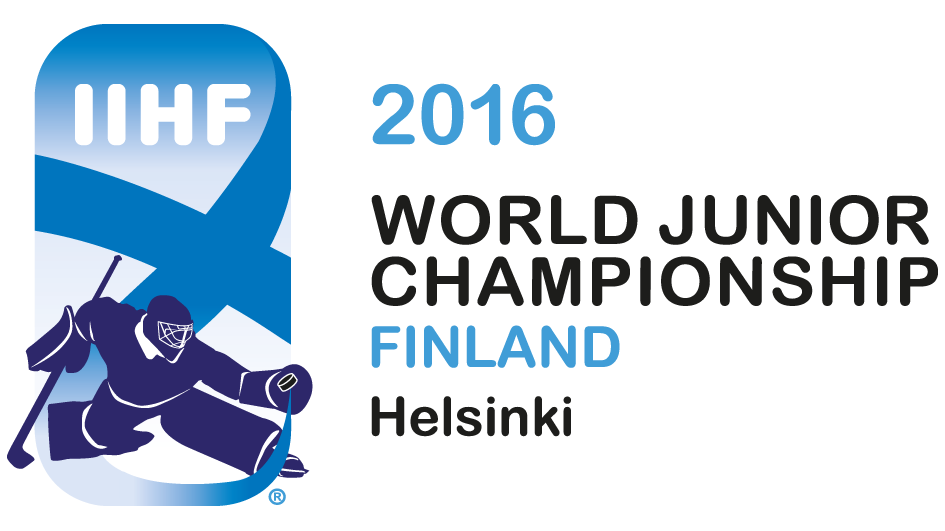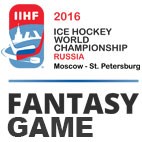Mutual respect society
Mutual respect society
Canada, Finland play each other tough but fair

 ST. PETERSBURG, RUSSIA - MAY 17: Canada's Max Domi #16 battles for the puck with Finland's Tommi Kivisto #4 during preliminary round action at the 2016 IIHF Ice Hockey World Championship. (Photo by Andrea Cardin/HHOF-IIHF Images)
ST. PETERSBURG, RUSSIA - MAY 17: Canada's Max Domi #16 battles for the puck with Finland's Tommi Kivisto #4 during preliminary round action at the 2016 IIHF Ice Hockey World Championship. (Photo by Andrea Cardin/HHOF-IIHF Images)
In the past, it was easy to see why. Canada won the majority of the games and Finland simply posed no threat to its hockey dominance. When Finland made its Olympic debut, Canada delivered a 13-3 pounding in 1952 in Oslo, Norway.
An even more shocking example was Canada's 24-0 romp in 1958 at the IIHF World Championship, also in Oslo. And in the opening game of the inaugural 1976 Canada Cup, the Canadians prevailed 11-2 at the Ottawa Civic Centre. Canada won all those tournaments.
More recently, the Finns could be counted on to serve as the bridesmaid when facing Canada in a final.
They famously lost 2-1 on Luc Robitaille's shootout goal when Canada won its first Worlds gold in 33 years at the 1994 tournament in Italy. Shane Doan did the damage with Canada's 3-2 winner in the 2004 World Cup of Hockey final in Toronto. The last time Canada and Finland squared off in a World Championship gold medal game was right here in Moscow in 2007, and star Finnish goalie Kari Lehtonen couldn't prevent Rick Nash from scoring twice in a 4-2 victory.
But let's fast-forward to today. There are no sure things anymore when these two nations clash, and a Finnish win over Canada is no longer considered an upset -- even though if Finland prevails today, it'll be the first time it has ever defeated Canada in the final of a senior IIHF tournament.
"It's a chance to win a gold medal against a team that beat us already and proved they were better than us," said Canada's Ryan O'Reilly, alluding to Finland's 4-0 round-robin win. "Now it's our turn to prove we're a better hockey team."
"I know Canada has a good team with some of the best players in this tournament," said Finland's Antti Pihlstrom. "We will have to be focused and play our best game."
Reflecting the growth in Suomi's potential, the Finns stole Canada's dreams of World Junior gold at both the 2014 and 2016 tournaments. Graduates of those championship teams suited up in the 4-0 win in St. Petersburg: defenceman Esa Lindell and Ville Pokka and backup goalie Juuse Saros represented 2014, and forwards Patrik Laine, Sebastian Aho and Mikko Rantanen represented 2016. The success of that youth movement indicates that there will be few easy matchups for Canada in the future against Finland.
So why is the respect there today? Why do Canada and Finland constitute a mutual admiration society? There are three key reasons.
First, the Finns play a style that is more North American than that of any of the major European powers. Granted, in terms of overall team tactics, the Finns are more likely to hang back and clog up the neutral zone, whereas Canada employs a more aggressive forecheck. But both countries focus on taking care of their own end first to generate offense, playing hard along the boards, and getting pucks to the net. And while physicality is always on the menu when the two nations meet, it rarely crosses the line into dirty play.
Second, almost every Canadian NHL city has used prominent Finnish players over the years. Think of Petri Skriko, Jyrki Lumme, and Sami Salo in Vancouver, Jari Kurri and Esa Tikkanen in Edmonton, Miikka Kiprusoff and Toni Lydman in Calgary, Saku Koivu in Montreal and Teemu Selanne and Teppo Numminen in Winnipeg. They're almost invariably regarded as hard workers and good influences both on and off the ice, which has endeared them to Canadian fans. (Based on current trends, both Toronto and Winnipeg are excited about the potential of seeing Laine join their team as a #1 or #2 overall selection in June's NHL draft.)
Third, the Finns openly acknowledge their debt to Canadian hockey. For instance, Carl Brewer, a Canadian defenceman who won three Stanley Cups with the Toronto Maple Leafs (1962, 1963, 1964), became the first import to star in the Finnish league as a player-coach with HIFK Helsinki in 1968-69. He was inducted into the Finnish Hockey Hall of Fame in 2004 as an honored member, and made a permanent stylistic contribution by heightening the grit in the Finnish game. Also, the Finnish Liiga's championship trophy is the Kanada-malja. It was donated by Finns living in Canada in the early 1950's.
Looking toward the upcoming gold medal game, Canada's Matt Duchene said: "We know what to expect from Finland. It will be a tough game. They frustrated the Russians with the way they played. They frustrated us in the preliminary round, so we need to be ready."
Finnish fans would love to see their nation make history today by winning World Championship gold to go with the World Junior and U18 titles they claimed earlier this year -- Finland would be the first nation ever to complete such a triple. Canadian fans are excited about the opportunity to claim back-to-back World titles for the first time since 2003 in Finland and 2004 in the Czech Republic.
Yet regardless of who gets to hear their national anthem played after the gold medal game at Moscow's Ice Palace, fans from both sides will graciously acknowledge that the best two teams at this tournament went to battle on Sunday, May 22, 2016. And that's a big part of what makes this rivalry great.
Back to Overview














































































